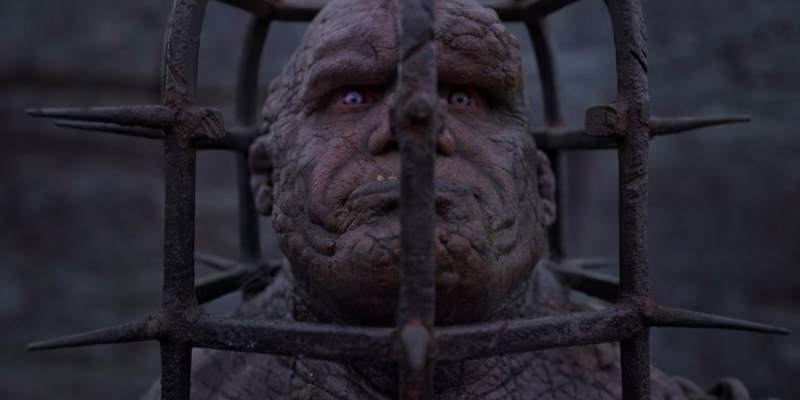This discussion and review contains some spoilers for Willow episode 5, “Wildwood,” on Disney+.
The first four episodes of Willow were pretty solid. While they didn’t exactly come close to matching the quality of Andor, which remains the high-water mark for franchise media on Disney+, they were basically well-constructed and competently scripted, managing to strike a tonal balance between high-fantasy storytelling and clever self-awareness, without veering too far in one direction or another. “Wildwood” marks the point at which the show’s self-awareness reaches critical mass.
“Wildwood” has a clear function to serve in the context of this season of television. Arriving as the fifth of eight episodes, just after the midpoint, “Wildwood” is clearly intended to flesh out the least developed cast members to this point, Jade (Erin Kellyman) and Boorman (Amar Chadha-Patel), while simultaneously allowing the show to align its various character-driven plot threads and engaging in a little world-building for this fantasy realm.
As such, “Wildwood” feels like an entire episode dedicated to what might be termed “shoe leather,” the grubby mechanics of long-form serialized storytelling that are necessary to ensure that the show can smoothly transition into its endgame. “Wildwood” is largely about making sure that the audience understands where each of the major cast members are before the action starts again, so that the viewer has a clear understanding of what every member of the party wants and needs.
The problem is that “Wildwood” is frustratingly inelegant in running through its narrative checklist. This is evident throughout the episode, but it is most obvious at the climax, which hinges on the entire cast consuming “truth plums” — fruits that make it “impossible to be anything but honest.” It’s an incredibly lazy way for the episode to run through a series of awkward confessions, as characters just bluntly exposit their motivations and desires to one another without any motivation or justification.
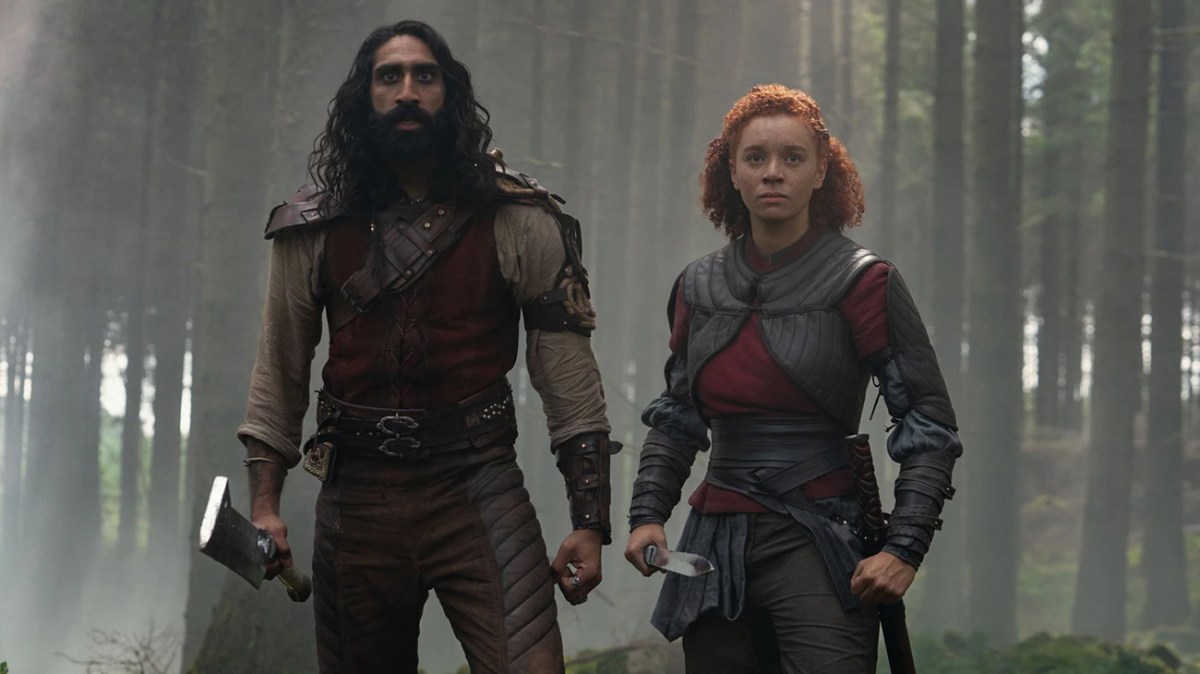
Kit (Ruby Cruz) confesses her feelings for Jade. Boorman acknowledges that, beneath his roguish exterior, he is loyal to both the expedition and to Scorpia (Adwoa Aboah). Willow (Warwick Davis) admits his insecurities to Graydon (Tony Revolori), bluntly stating that “behind all that ‘wisdom,’ Willow Ufgood here is terrified that one day he’ll be discovered as the aging, talentless hack he really is.” This is the bluntest possible way to communicate all this to the audience.
The ”truth plums” reduce the show’s primary cast to emotional exposition machines. It’s the kind of writing that Futurama parodied with the Robot Devil’s (Dan Castellaneta) critique of Fry’s (Billy West) opera, “You can’t just have your characters announce how they feel! That makes me feel angry!” The third act of “Wildwood” is populated with nothing but characters announcing how they feel, and it is enough to make any reviewer feel angry.
That laziness is indicative of many of the underlying issues with the episode. “Wildwood” is the lightest episode of Willow to date. It is completely lacking in any plot or stakes. The episode opens by establishing the threat within the eponymous forest, only to completely ignore it. “The Wildwood is seductive,” Boorman warns the other characters. “It lures you in with its sights and sounds. The next thing you know, you’re officiating weddings and dog-sitting for casual acquaintances.”
It initially seems like “Wildwood” is setting up a riff on “the land of the Lotus-Eaters,” a literary archetype dating back to the Odyssey. Willow begins to explain, “People say there’s something in the air, the trees, the water that makes you…” Graydon finishes the thought, “Never want to leave? Lose your will to do anything?” While it is hardly the most original hook, it at least fits with how the mythology of Willow seems drawn from ancient mythology, with allusions to “the Grove.”
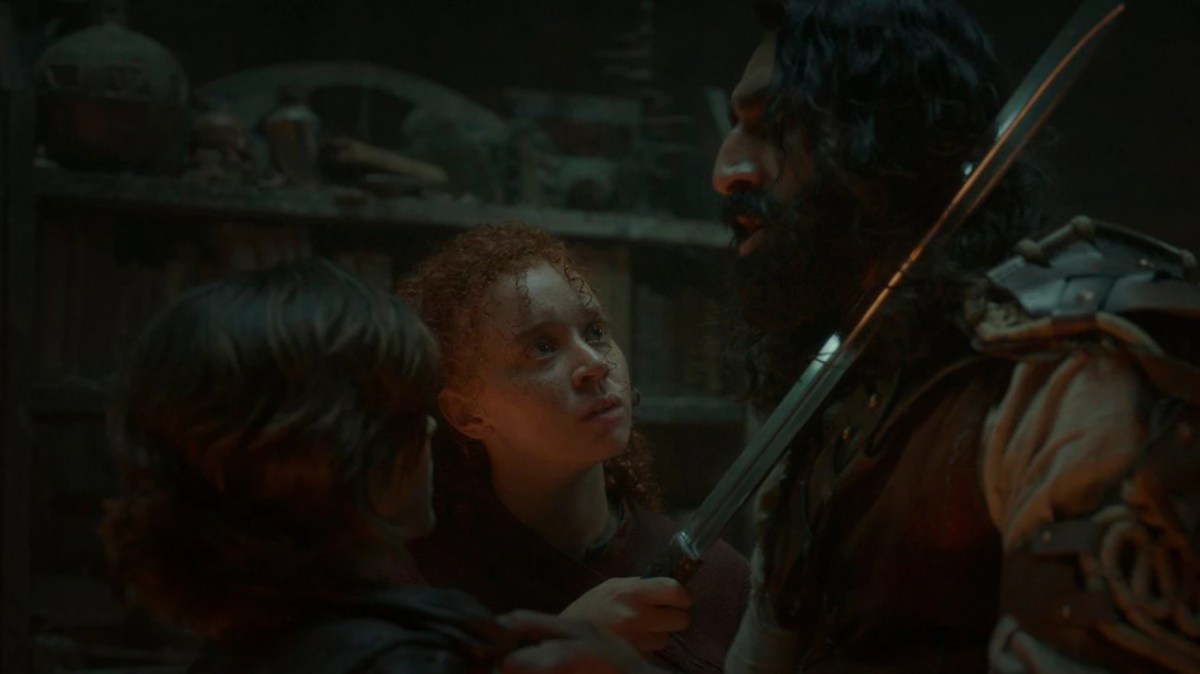
However, “Wildwood” quickly eschews that for a bunch of exposition and fan service, with the bulk of the episode given over to providing the backstory for the Bone Reavers and tying that into Jade’s own personal history. To be fair, this is the most interesting aspect of “Wildwood.” It is nice to see the show fleshing out the mythology around a group of characters that were introduced as a monstrous horde in “The Gales,” even if the show stops dead in order to do it.
As in “The Whispers of Nockmaar,” there is some sense that Willow is gently poking at the conventions of old-fashioned fantasy epics, revealing that the anonymous horde of scary-looking raiders is actually a distinct culture with its own motivations and perspectives. Scorpia explains that the Reavers were persecuted and enslaved by Galladoorn and Tir Asleen, and they only sided with Bavmorda (Jean Marsh) in the hopes of securing their freedom from oppression.
It’s an interesting backstory that adds shades of gray to a genre that can often cast its morality in black and white. Indeed, Queen Sorsha (Joanne Whalley) doesn’t emerge from “Wildwood” seeming especially heroic, having apparently been complicit in the kidnapping of Jade as a baby to serve as a hostage. “What better way to prevent an uprising than to steal their future?” explains Scorpia. “Raise children to believe their captors are their saviors?”
It’s easy to sympathize with the Bone Reavers. As Scorpia tells Jade, “People do whatever’s necessary to be free.” Later, she triumphantly addresses the assembled crowd, “All we have ever wanted is our freedom. That our children would not have to live in fear, they’d served no master: Daikini or Troll or Crone. We have no barrier to hide behind, no army to defend us. All we have is the fear that our masks evoke, the determination to survive — and each other.” That all seems fair.
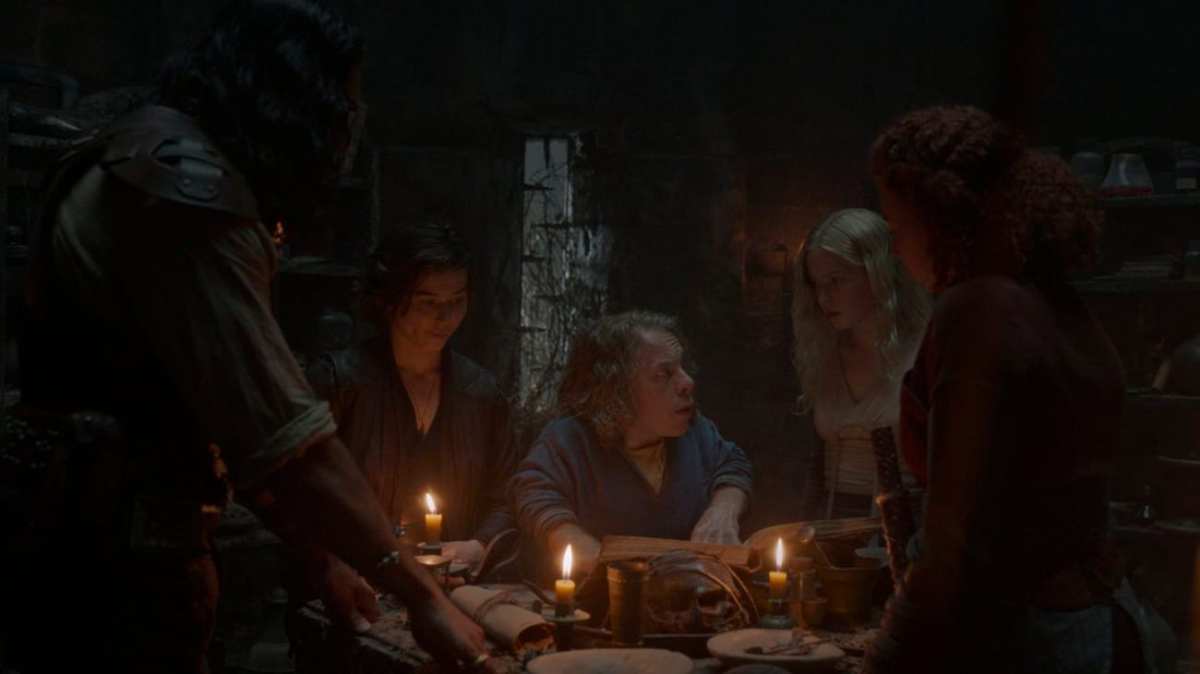
However, this isn’t as elegant as the interrogation of the fantasy genre’s fixation on bloodlines in “The Whispers of Nockmaar.” After all, the Bone Reavers murdered Jorgen Kase (Simon Armstrong) in “The Gales,” and none of the party that rode with him seem to harbor any anger over that. More than that, while “Wildwood” makes an effort to humanize the previously monstrous Bone Reavers, it still ends with an attack from a horde of trolls, suggesting that not every species in this world will be humanized.
Still, the bigger problem is that “Wildwood” just stops dead while relaying all of this information to the audience. Willow spins its wheels for a week. It tries to compensate for this lack of momentum and narrative structure by leaning hard on two common crutches in modern franchise storytelling: continuity references and self-aware dialogue. Willow had already employed these techniques, but “Wildwood” leans completely and unquestioningly into them.
This is the problem with “Wildwood” in a nutshell. Without a clear structure or plot, the episode doesn’t so much break from the conventions of earlier episodes as push those conventions to breaking point. The problems with “Wildwood” are not unique to this episode, with many of them present in lighter concentrations in earlier episodes. The problem is that, without an ordering principle to balance them out, these elements build very quickly to critical mass.
The soundtrack is a small example of this. Each previous episode closed with a modern cover of a pop or rock standard: “Guess Who’s Back” by Beginners and Night Panda, “Hurdy Gurdy Man” by Sir Jude, “Enter Sandman” by Rina Sawayama, “Black Hole Sun” by Nouela. “Wildwood” marks the first time this sensibility feels intrusive. The opening action sequence is set to “Time for Some Mayhem” by Arre! Arre!, and the final act features a slow dance to “Crimson + Clover” by Pom Pom Squad.
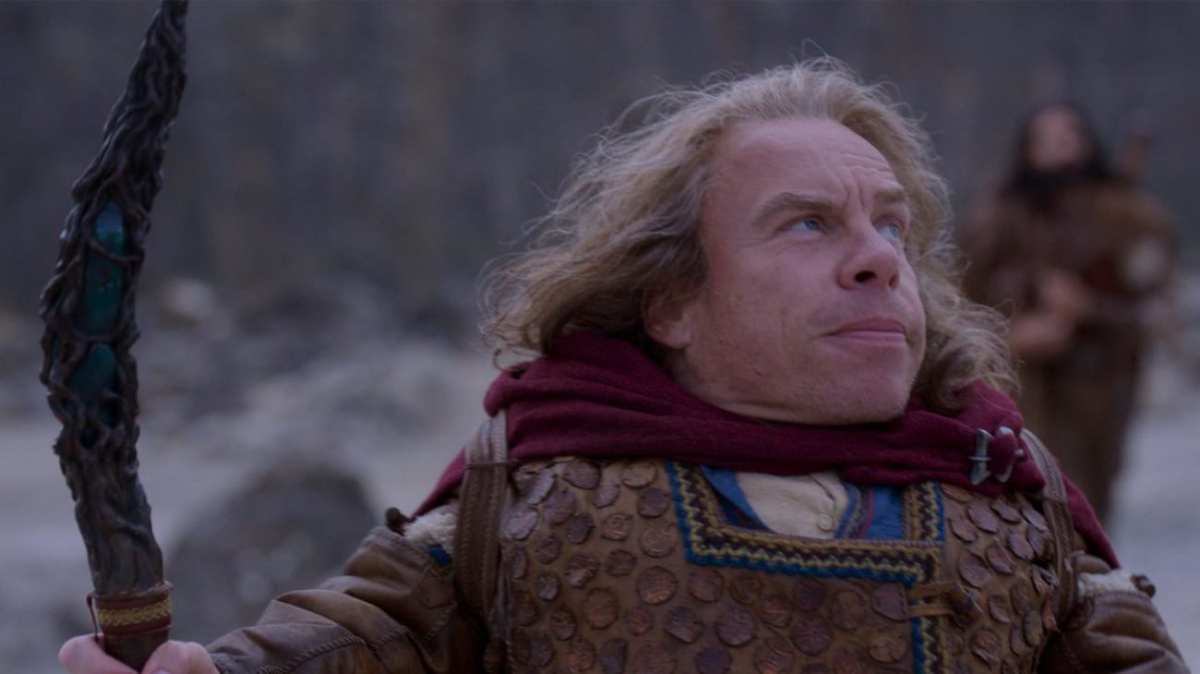
When “The Whispers of Nockmaar” brought the cast to Nockmaar and presented them with flashbacks to the events of the feature film, it at least serviced the core themes of the show and served the story that the episode was telling about how family could be a curse. In contrast, “Wildwood” treats its fan service and ironic banter as ends unto themselves, a way of distracting from the formlessness of the episode around them, hoping that the audience might miss the fact that there’s nothing underneath them.
This is obvious from the outset. Every character in “Wildwood” becomes a quip machine. During the opening chase, as the Gales stalk the party, Graydon wryly notes, “If only they took the time to get to know us, right?” When Willow makes a reference to “magical pedagogy,” Dove (Ellie Bamber) recoils, “Ew.” Later in the same scene, Dove tries to use her magic powers “to remove that stick from (his) butt.” These aren’t jokes, but dialogue in the roughest possible shape of jokes.
“Wildwood” compensates by falling back on continuity. It is revealed that Jade is the daughter of Bavmorda’s loyal follower, General Kael (Pat Roach), which makes sense in the context of her encounter with him in “The Whispers of Nockmaar.” That episode was about children confronting parents, and so that confrontation now fits. Similarly, “Wildwood” features a cameo from Kevin Pollak as Rool, reprising his role from the film. Although reported to be appearing in the show, Rick Overton does not cameo as Franjean.
It’s very clear why “Wildwood” is stalling. The episode is leaning heavily into the soap opera elements of this young adult fantasy. It’s lining up its ships, trying to convince the audience to root for Kit and Jade, Dove and Graydon, and Boorman and Scorpia. That all makes sense, in terms of mapping out a larger arc of the season around it. However, it’s the execution that leaves a lot to be desired. Clumsy and awkward, “Wildwood” is nowhere near as seductive as it needs to be.
